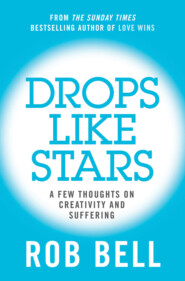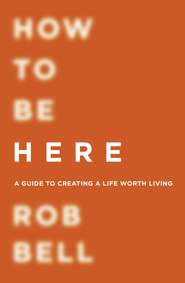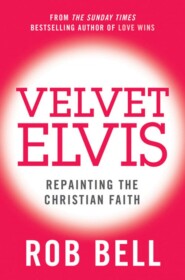По всем вопросам обращайтесь на: info@litportal.ru
(©) 2003-2024.
✖
The ZimZum of Love: A New Way of Understanding Marriage
Автор
Год написания книги
2018
Настройки чтения
Размер шрифта
Высота строк
Поля
An off-handed comment, a subtle slight, an expectation that wasn’t met, a job around the house that you kept avoiding—it wasn’t that big of a deal, but it grew and expanded and gained a head of steam as it completely changed the space between you. This is what happens in a generative space—things are magnified beyond their actual size.
One moment your marriage is pure joy, and the next sheer misery, the beautiful friendship and ease you had between you gone; you don’t even want to be in the same room.
This is why marriage can be so difficult and so great: the space that multiplies and magnifies any negativity between you also multiplies and magnifies the generous and kind things you do for each other.
R: We were in a surf shop, and I noticed the tide watch the guy behind the counter was wearing. (A tide watch tells you how high or low the water is, which affects when the waves are best for surfing.) Kristen apparently noticed me noticing his watch, because a few weeks later she gave me the same watch. I’ve been wearing it for years, and to this day, when I check the time, I’m struck by how often I think of her. It’s just a watch. But after twenty years together, it’s way more than just a watch—it’s a sign, a symbol, a reminder that this woman is looking out for me.
This generative space responds to whatever you put into it, magnifying the good things you do for each other as well as the negative things that echo between you. This is true for whatever you bring to the space, including the things that you aren’t aware of.
K: In the summer of 2004 Rob was speaking in California, and the boys and I joined him to make a family vacation out of it. One night on that trip he went to bed early without saying good night.
R: I was exhausted, and I was trying to fall asleep but I couldn’t because the television in the other room was so loud. Kristen was watching Letterman, and it sounded like she was turning the volume up.
K: Which I was. I was angry. But it actually went much deeper than that.
R: I was in that half-awake/half-sleep state, and Renée Zellweger was Dave’s guest and all I could think was, “Renée, please stop talking so loud.”
K: I was angry because he had energy for all of these other people but not for me. He had been distant for some time, and I wondered whether he still loved me. I thought, Maybe this is just how it is when you’ve been married for a while.
R: I didn’t have anything to give. I had been working too hard for too long, pushing myself beyond my limits.
K: It was hard for me to start the conversation because I wondered whether my fears were true—that his love for me had faded. But the next day when we started talking, it became clear that it had nothing to do with how he felt about me.
R: The real reason for our disconnection wasn’t my lack of love for Kristen—it was my emotional health. I was cooked, burned out, empty, exhausted, running on fumes, and up until that conversation I hadn’t been aware of how it was affecting both of us.
Your emotional health matters. (#litres_trial_promo)
It matters when you meet someone, it matters when you’re committing to spend the rest of your life with that person, and it matters when you’ve been together for one or seven or twenty years. Whatever history and baggage and issues you bring to your marriage, they now belong to both of you because when you get married, whatever is yours is now ours.
We bring our entire selves to the space between us.
The arrow leaves you and extends to them—that’s how the flow is sustained. Whatever it is—unresolved issues with your family of origin, addictions, struggles, emotional scars, wounds from past relationships, regrets, destructive habits, unhealthy patterns of reaction or avoidance—it’s all there in the shared space between you.
You cannot keep your issues to yourself. The space is too responsive. It’s like a motion sensor, picking up the most subtle movements. You can’t hide anything, even if you think you’re hiding it.
It’s an illusion that whatever it is, “it doesn’t affect the marriage,” or “what they don’t know won’t hurt them,” or “it’s not a big deal.”
It does, it will, and it is.
You’re intentional about your own health because your marriage will only be as healthy as the least healthy one of you.
As counterintuitive as it may seem, taking care of yourself is one of the best gifts you can give the person you are married to. This includes exercising, eating well, getting enough sleep, engaging in regular practices that feed your soul—these are all essential to giving your best to the person you love.
This isn’t about perfection; it’s about the direction you’re headed in, the trajectory you’re on, both of you—and the two of you together—refusing to settle, pursuing the best possible life together.
Pain and discomfort and the gnawing sense that things could be better are your friends. They wake you up, they stir you to action, they motivate you to get help. This may mean initiating difficult conversations, finding help in a book or class or retreat, or seeing a therapist or doctor or spiritual director.
Sometimes a disruption is the best thing for the space between you.
R: That trip to California was a disruption for me. When we returned, I began to uncover with a counselor the reasons why I had been pushing myself so hard. It was life changing.
Sometimes the problem is you.
You brought something to the space that you haven’t dealt with, and it’s affecting you both. Until you deal with it, it will continue to have a negative effect on the flow between you. The space, however, is highly responsive, and it’s surprising how even the smallest steps toward health can significantly change things.
You zimzum, they zimzum, you know they’d do anything for you, you talk about what makes each of you thrive, the arrows go back and forth—that’s what creates the energetic flow between you.
But then there are the times when the arrows don’t feel equal. Times when you feel like you’re doing your part, but they aren’t doing theirs. In those moments it’s easy to become resentful, keeping track of who’s doing what, clutching your scorecard.
You know the scorecard, right?
The scorecard is how we keep track of how much we’re giving and how much they’re giving and who’s sacrificing more and who’s carrying more of the weight and who’s got the lighter load and who’s taken on more of the responsibility so that the other can pursue their goals and who’s working harder at the relationship and who owes more and who’s turn it is to empty the dishwasher. The scorecard is at the heart of an extraordinary number of fights; it lurks in the shadows of lots of heated discussions, and if it’s not addressed and is left unchecked, it can poison the space between you.
The scorecard is rooted in resentment, and the space between you is highly responsive to resentment. Even the slightest tremors of bitterness can block the flow of love.
Вы ознакомились с фрагментом книги.
Приобретайте полный текст книги у нашего партнера:
Приобретайте полный текст книги у нашего партнера:











